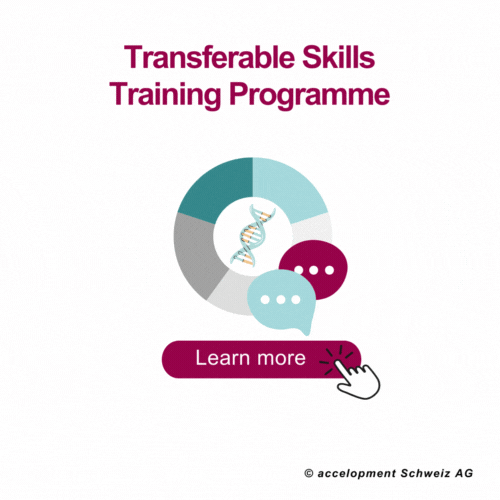Outreach opportunities for early-career researchers
9th November 2023 at 2:16 pm
Becoming an exceptional researcher in the changing landscape of science involves not only mastering the intricacies of your field of study but also developing a wide range of transferable skills, including the ability to effectively communicate your research to various audiences.
In this article, we highlight some activities that we have implemented in our EU-funded projects with the aim of nurturing spaces where early-career researchers, mostly PhD students and Doctoral Candidates, can engage in meaningful knowledge-sharing opportunities, underscoring the importance of bridging the gap between research and the wider world.

Joining the club: Long-lasting collaboration and networking
Involving PhD students and other young researchers in activities beyond scientific research can benefit their training in different ways. For example, connecting with other researchers in an organised way can facilitate collaboration and the development of broader perspectives. AI-Mind and CORENET are two of our projects that include initiatives aimed at providing robust support for the young researchers who are involved in these projects.
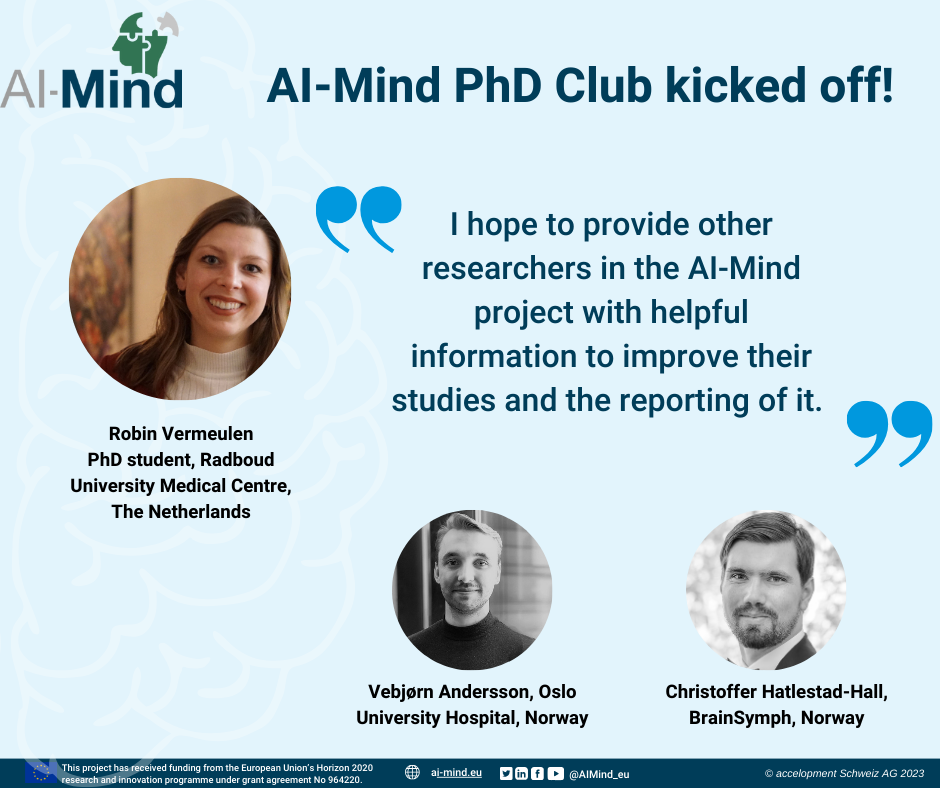
The AI-Mind PhD Club, which was initiated by early-career researchers involved in the AI-Mind project, allows participants to share knowledge and experiences of following a PhD in different disciplines, discuss their research interests and pursue opportunities to collaborate. Regular meetings involve presentations from PhDs, guest talks by experts in the field and follow-up discussions. The AI-Mind PhD Club has proven to be an effective platform not only for promoting scientific exchange but also for establishing long-lasting connections with the potential to lead to future collaborative projects.
As another example, young researchers engaged in our CORENET project have the opportunity to participate in the CORE – PhD & PostDoc students – NET. This initiative provides a platform for connecting and collaborating with peers who share similar research interests. The site showcases the collective research groups from the partners and their significant contributions to the project, spanning fields that include systems chemistry, artificial intelligence, metabolomics, and microfluidics. A new working group is set to launch that will provide the consortium’s young researchers with opportunities to work together and share their research passions and discoveries.
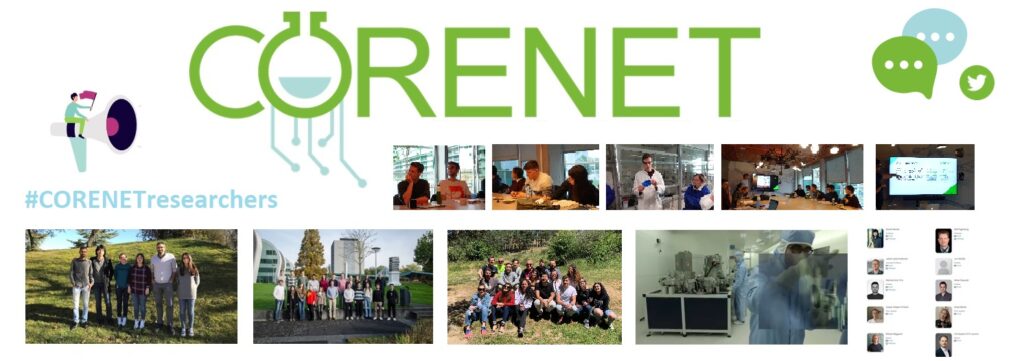
Both the AI-Mind PhD Club and CORE – PhD & PostDoc Students – NET welcome participants at various stages of their research and involve regular gatherings of PhD and Master’s students, research assistants, clinicians, technicians and seasoned senior researchers, providing spaces for diverse minds to meet and collaborate in the pursuit of knowledge and innovation.
Showcasing the research: Science slam videos
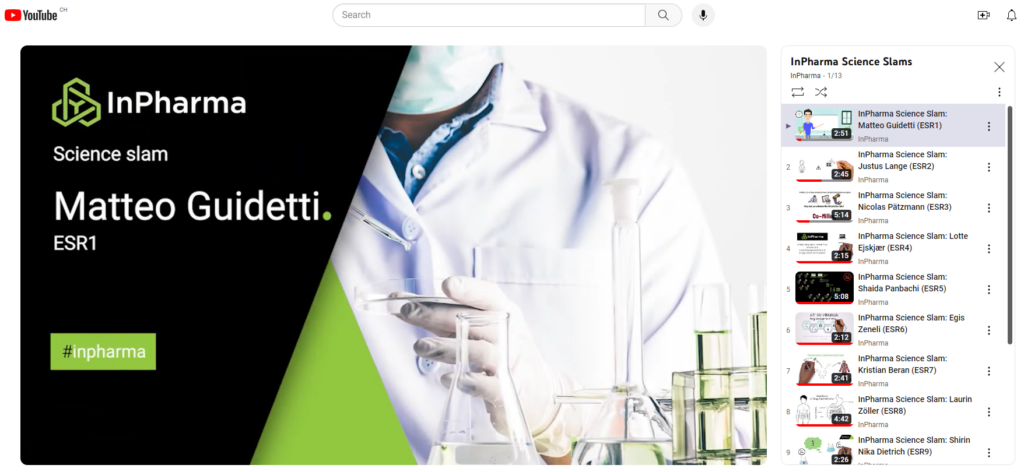
In line with InPharma’s commitment to outreach and open access, early-career researchers have taken an innovative approach to introducing themselves and their research projects through 13 science slam videos. These engaging videos are accessible on the project’s website and YouTube channel. By providing insights into the researchers, their endeavours and the captivating worlds of their research, these videos serve as valuable educational resources for fellow PhD students, researchers from academia and industry and the general public.
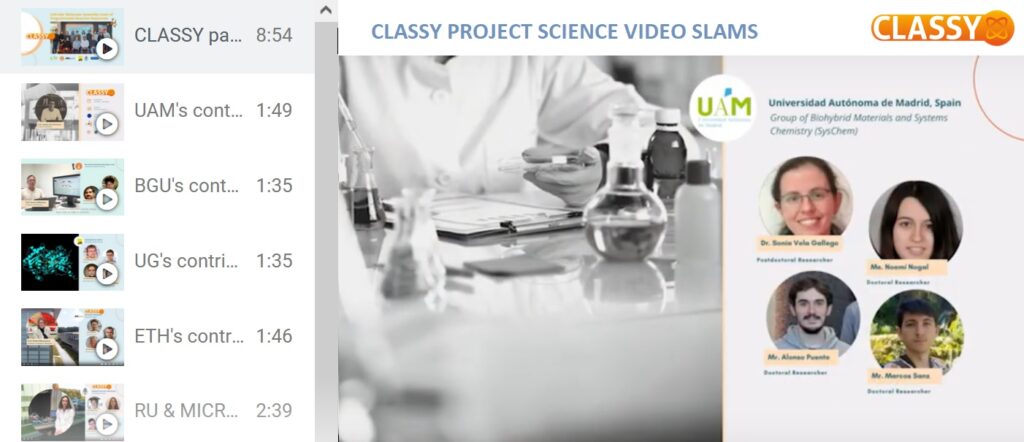
As part of the CLASSY project, each academic partner has contributed a science slam video that focuses on their specific discipline and the research questions central to the project. All early-career researchers affiliated with CLASSY have participated in these science slams, thereby providing a platform for them to voice their contributions to the project. These videos are prominently showcased on the project’s YouTube channel, both individually and as a collective resource that highlights the progress and expertise within the CLASSY project while shedding light on the vital contributions of each researcher involved.
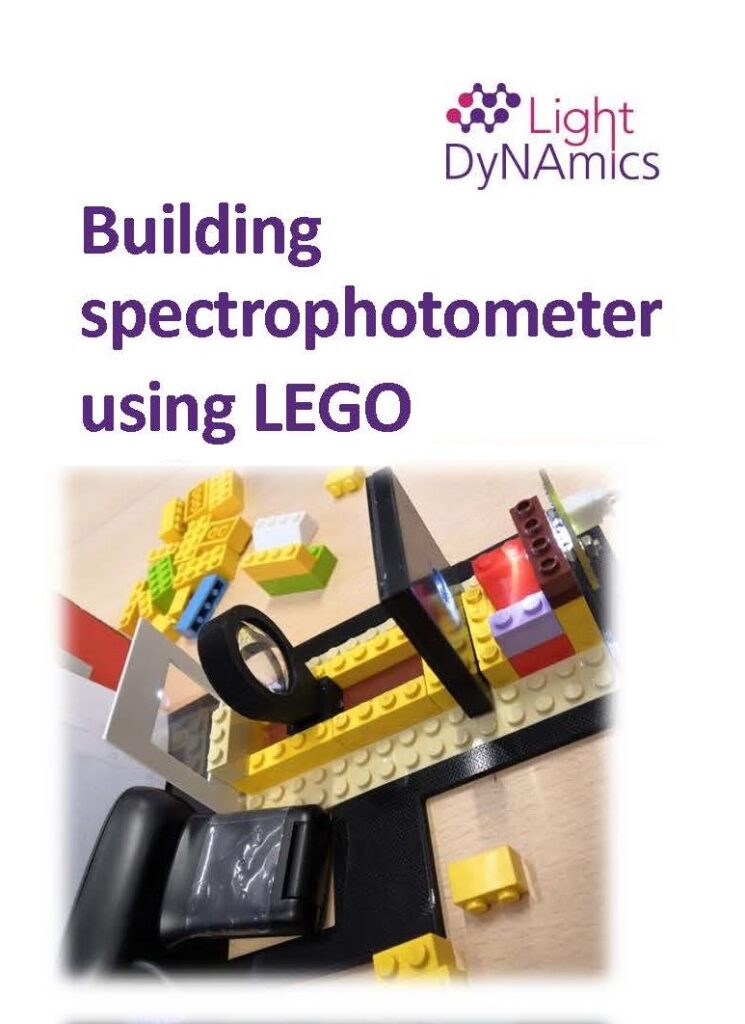
Inspiring the next generation: Podcast and lab experiments
As part of the LightDyNAmics outreach and public engagement strategy, early-career researchers developed Lab Experiences for students of different ages. This initiative aimed to educate students about the world of photochemistry through hands-on activities and to enhance their curiosity about the science. The proposed experiences offer three different approaches to enlivening chemistry and/or physics lessons.
The STACCATO podcast was launched in November 2022 and includes six episodes produced by early-career researchers, who not only promote MSCA and their research but also educate the audience on single-cell analysis, innovative therapies and potential future developments. In the podcast episodes, talented PhD students talk about their experiences and research aimed at developing new manufacturing methods for biopharmaceuticals. The podcast is available on Spotify and Achor.
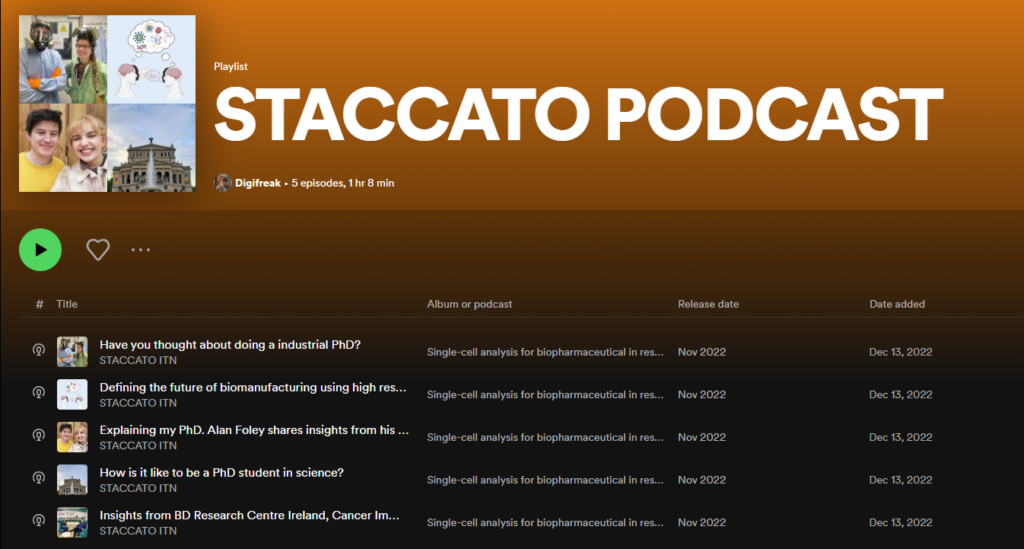
Enhancing competitive skill sets: Science Communication training
Equipping the researchers with transferable skills through our Transferable Skills Training Programme dedicated to early-career researchers, also creates an opportunity for outreach activities as the participants not only learn new skills but, especially through the science communication training module, they also learn how to communicate about these and share their training experiences with a broader audience. Our training modules are designed to be engaging and interactive, comprising online lectures, quizzes, brainstorming activities, individual and group exercises, all tailored to the specific research topics of the participants. Born out of our participation as partners in several dozens of MSCA-ITNs and now offered also to MSCA-DNs as well as to early-career researchers in collaborative Horizon Europe projects and beyond, our Transferable Skills Training Programme includes a Science Communication module that can be complementary to and integrated within a broader training programme, as described in the two examples below.
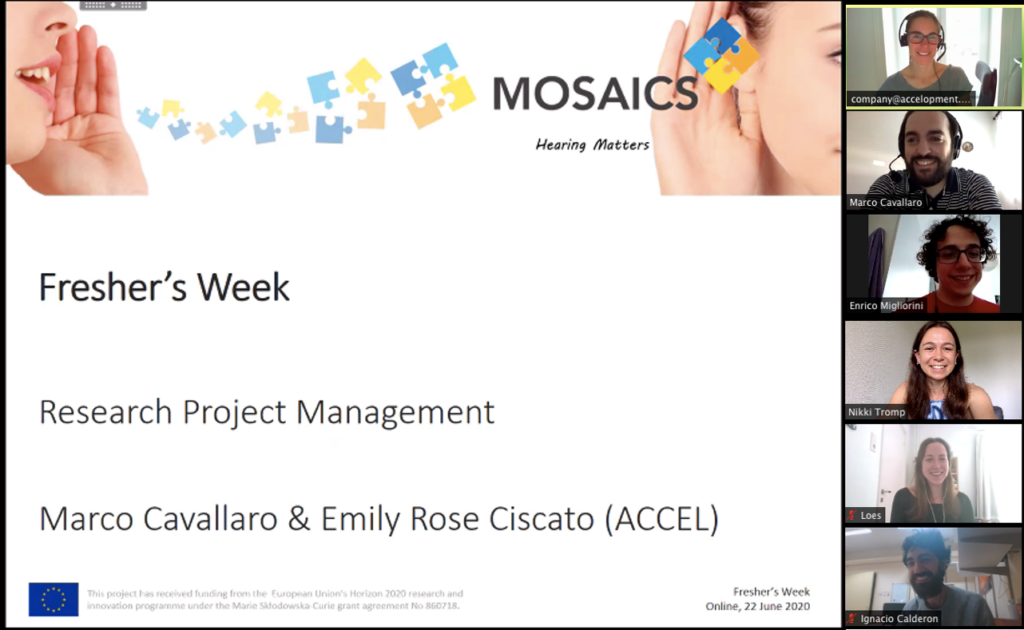
The MSCA-EID project MOSAICS has provided four early-career researchers with unique multidisciplinary training via cooperation between academic partners and the private sector, enabling them to contribute to the innovation of hearing-related products and preparing them to thrive as specialists in the healthcare sector. The presence of five non-academic partners, including accelopment, in the MOSAICS consortium has ensured that the young researchers were provided with industry-focused training in the fields of biotechnology, healthcare, electronics, and ICT, as well as with the opportunities to exchange with patients during focus groups, and strengthen their transferable skills with our dedicated training modules. The modular training approach, developed for the project, enabled the seamless inclusion of our sessions on science communication within the overall training programme. The mix of online and in-person activities combined with the multidisciplinarity of the training programme, has helped enhance the MOSAICS’ early-career researchers’ skill sets, preparing them for their next career steps in academia, industry or the clinical sector.
As another example, the MSCA-ETN CONSENSE is actively engaged in training the next generation of scientists in the development of continuous biosensors for personal monitoring in healthcare applications. This comprehensive training program is offered to 15 early-career researchers through a collaboration between eight leading academic groups, eight SMEs including accelopment, and four prominent medtech companies spanning nine countries. We delivered our science communication training module to the early-career researchers through an online format, providing them with guidance, tools and opportunities to enhance their project’s outreach activities and share the progress of their research with a varied audience, mainly through the project’s website and social media channels.
accelopment and the researchers
We embrace our role in facilitating groundbreaking innovations and cutting-edge technologies at the forefront of science. Many of the ongoing pioneering developments have been kickstarted by the ingenuity of young researchers. Encouraging the early-career researchers to take the initiative in communication and dissemination activities through EU-funded projects provides a platform for these young minds to share their research interests and findings while forging connections and developing fruitful collaborations with kindred spirits from diverse scientific domains.
Drawing on our extensive experience as communication and dissemination leaders in more than 65 EU-funded projects, we have honed our expertise in supporting the aspirations of emerging researchers. For further information, please reach out to us, and our dedicated training experts will be at your service.

Joanna Plesniak
Project Manager Communications
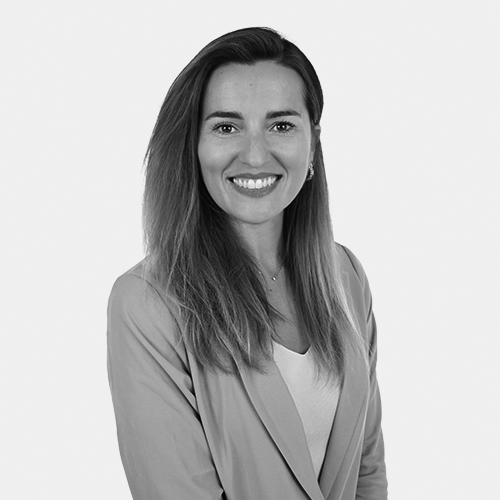
Miriam Frances
Project Manager Communications

